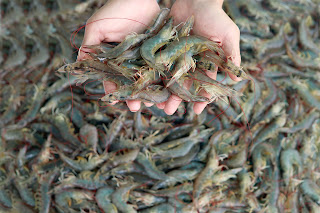Feed
barge builder Gael Force Group has revealed its 2022 Sea Safe features
and enhancements on its extended SeaFeed barge range, which are made
from concrete and steel. All SeaFeed barges are equipped with their
SeaFeed software, which is a feed system that enables the farm manager
to have control over how their fish are fed.
The
range was unveiled ahead of their exhibiting at Aquaculture UK, which
will be held at Aviemore, in Scotland, from May 3-5. Current barges in
Gael Force's portfolio include their 150T to 300T SeaFeed steel barges
and 600T SeaFarm steel barge, of which they are adding their range of
400T to 500T SeaFeed steel barge designs. The barges are designed and
built by a well-established and skilled team based in Scotland.
The 2022 Sea Safe features boast a range of features which include a smart new hatch alarm system which is connected to all doors and openings – meaning if doors are left open, the alarm system will notify the operator – robust DNV-compliant watertight doors and hatches, and watertight cable glands, among others.
.jpg) |
| 350T concrete barge |
Their
optional hybrid power systems., which are supplied by Fjord Hybrid, can
be installed to existing barges, meaning fish farms are able to run
their generators for around three hours a day as opposed to the
traditional 24 hours. This can reduce greenhouse gas emissions by up to
90 percent and reportedly, extend the lifetime of power supply systems
by up to 60 percent.
Group
Managing Director Stewart Graham explains, "With the price of steel
trading at peak levels, continuing to provide our customers with an
economical choice of reliable, stable concrete feeding platforms remains
important for the safety of farmers and cost-efficient husbandry of
fish.
"Our
feed barges have gradually evolved over many years as fish farming
methods have advanced, however, by modernising our concrete designs
within the SeaFeed range and implementing our collection of 2022 Sea
Safe features we see this as a significant leap forward, building a
stronger more competitive offering in support of our customers."
Visitors to Aquaculture UK will be able to visit Gael Force's stand and attend the unveiling of the 2022 Sea Safe features.
Cooke Aquaculture recently deployed their first hybrid feed barge in partnership with Gael Force and can be read about, HERE.
For more information on Gael Force Group visit their website, HERE.















